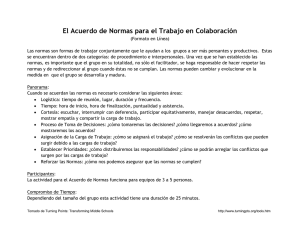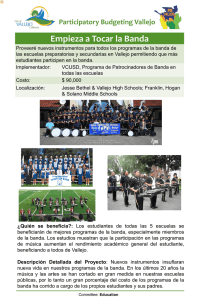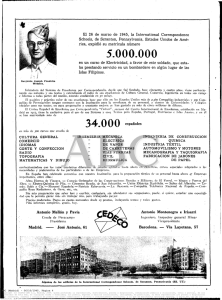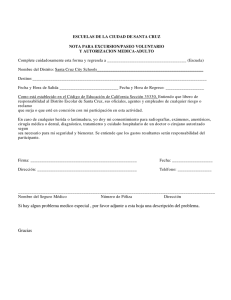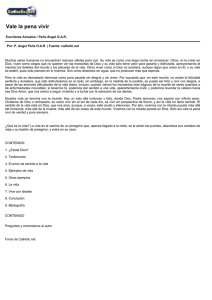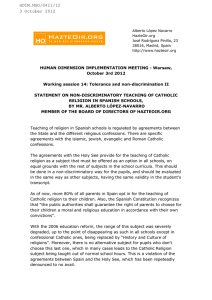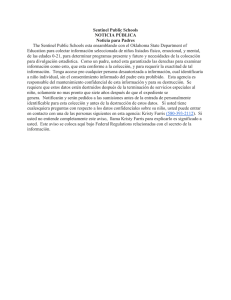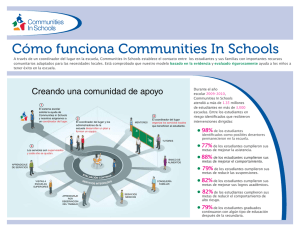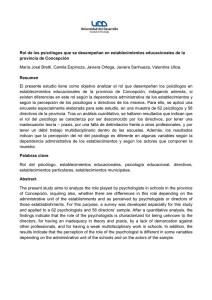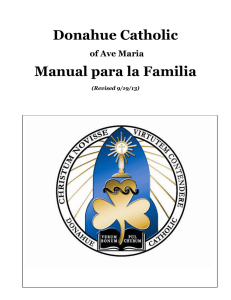ALLA DE LAS FRONTERAS. Una mirada sobre la cultura escolar en
Anuncio
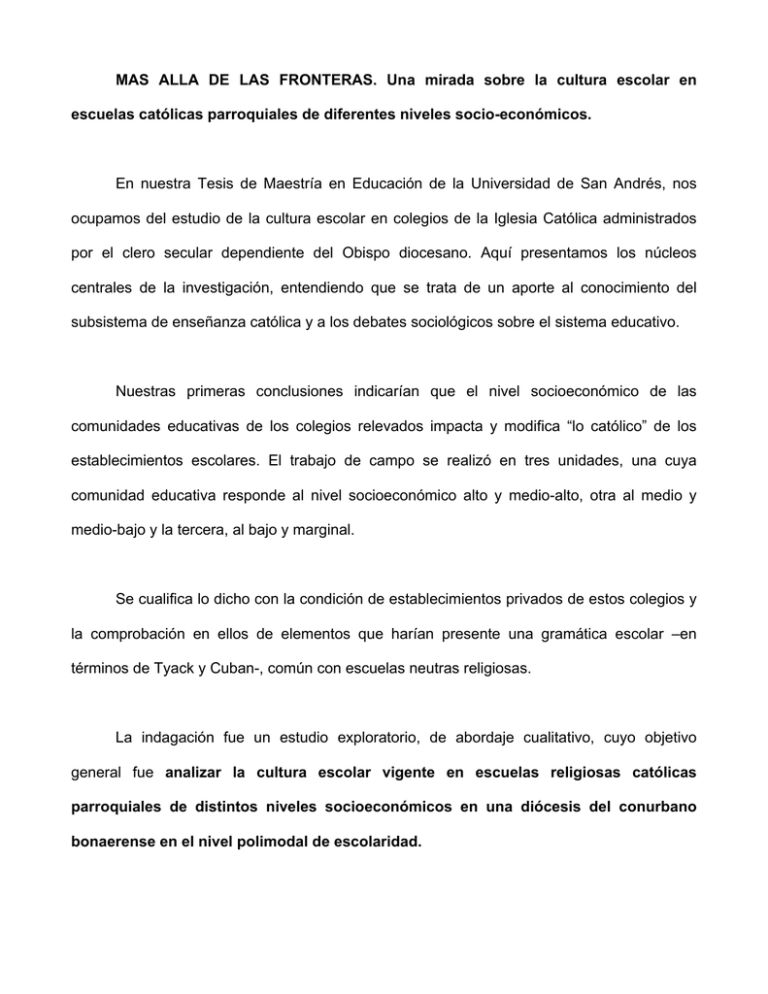
MAS ALLA DE LAS FRONTERAS. Una mirada sobre la cultura escolar en escuelas católicas parroquiales de diferentes niveles socio-económicos. En nuestra Tesis de Maestría en Educación de la Universidad de San Andrés, nos ocupamos del estudio de la cultura escolar en colegios de la Iglesia Católica administrados por el clero secular dependiente del Obispo diocesano. Aquí presentamos los núcleos centrales de la investigación, entendiendo que se trata de un aporte al conocimiento del subsistema de enseñanza católica y a los debates sociológicos sobre el sistema educativo. Nuestras primeras conclusiones indicarían que el nivel socioeconómico de las comunidades educativas de los colegios relevados impacta y modifica “lo católico” de los establecimientos escolares. El trabajo de campo se realizó en tres unidades, una cuya comunidad educativa responde al nivel socioeconómico alto y medio-alto, otra al medio y medio-bajo y la tercera, al bajo y marginal. Se cualifica lo dicho con la condición de establecimientos privados de estos colegios y la comprobación en ellos de elementos que harían presente una gramática escolar –en términos de Tyack y Cuban-, común con escuelas neutras religiosas. La indagación fue un estudio exploratorio, de abordaje cualitativo, cuyo objetivo general fue analizar la cultura escolar vigente en escuelas religiosas católicas parroquiales de distintos niveles socioeconómicos en una diócesis del conurbano bonaerense en el nivel polimodal de escolaridad. BEYOND THE FRONTIERS. A look into the school culture of Parish Catholic Schools of different socio-economic status. In our thesis we are concerned with the study of the culture of schooling of institutions belonging to the Catholic Church which are under the administration of the secular clergy under the responsibility of the diocesan bishop. We are presenting the main guidelines of our research, in the understanding that it will contribute to the understanding and learning of the subsystem of Catholic Schools and the sociological debates about educational systems. Our first conclusions would indicate that differences in the socio-economical status of communities which attend the different schools has a high impact on “what is catholic” in each one of them. “Camp research” has been done at three units. The first one belonged to the high or middle high socio-economical level, the second one belonged to middle or middle low, and the latter to the low. This corresponds with the condition of being private schools and having confronted elements that assure the presence –in terms of Tyack and Cuban- of a grammar of schooling common to neutral religious schools. The investigation was a qualitative and exploratory work. Its general objective was to analyze the school culture in effect at Parish Catholic Schools of different socio-economic levels in a Buenos Aires dioceses in the Polimodal level of education.

